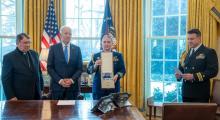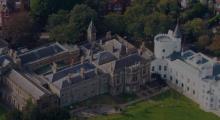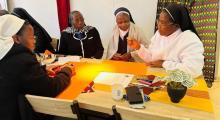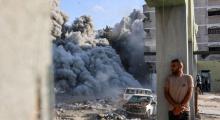Issued by the Catholic Center for Studies and Media - Jordan. Editor-in-chief Fr. Rif'at Bader - موقع أبونا abouna.org
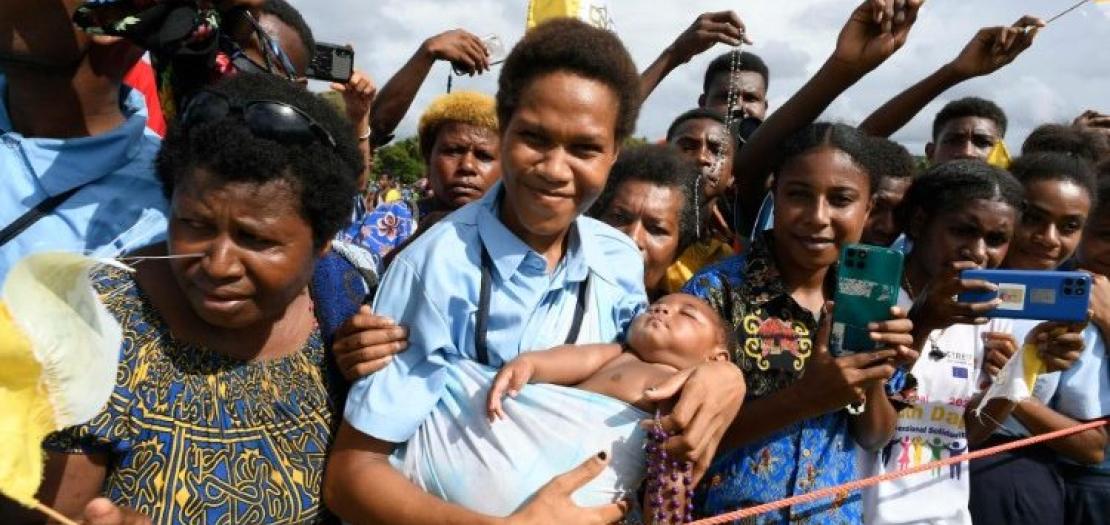
Christianity is not merely a philosophy, a set of ideas, or a manual of moral rules. It is an event, woven with wonder and human faces. This truth was once again made evident on a sweltering Sunday afternoon in Vanimo and the remote village of Baro. There was awe and gratitude in the faces of Miguel De la Calle, Martín Prado, and Tomás Ravaioli, the Argentine missionaries of the Institute of the Incarnate Word, who joyfully dedicate their lives to spreading the Gospel in this far-flung corner of the world—an area as vibrant and colorful as a Paul Gauguin painting.
There was awe and gratitude in the face of Pope Francis himself, who at almost 88 years old, despite being confined to a wheelchair, boarded an Australian Air Force Hercules C130 loaded with aid and gifts. After a decade-long dream, he finally arrived to embrace this distant periphery, greeting those joyful missionaries clad in white, like himself, and, most importantly, like their people—people who came to know the Mother of Jesus through the face of “Mama Luján,” the patroness of Argentina.
The sight of Pope Francis in the modest wooden house of the missionaries, sipping mate, was remarkable. The room, draped with mosquito nets, had just witnessed him mingle with a crowd of men, women, and children dressed in vibrant garments, adorned with feathers and straw, their bodies painted in colorful patterns. For years, the Successor of Peter has been in close contact with his fellow Argentinians, who bear witness to the unconditional love of God among these people. His bond is especially strong with Father Martín. Yesterday, the young missionary was overwhelmed with gratitude for his friend, who defied all odds to be present, even if only for a few hours, to witness with his own eyes the birth of a new church and the immense challenges it faces—challenges embraced with joy.
Vanimo and Baro face many difficulties. The people live in precarious conditions, lacking running water, electricity, and access to sufficient medical supplies. Violence, tribalism, and the exploitation of the region's vast mineral and timber resources by multinational corporations are harsh realities. Yet, amidst these struggles, the fathers of the Institute of the Incarnate Word established a string orchestra in 2018, composed of children and young people, on this stretch of the Pacific coast between the jungle and the coral reef. Among the tons of supplies carried by the Pope’s military plane were violins and cellos. Delighted like a child, Francis listened to a couple of pieces performed by the orchestra. The scene evoked memories of the Jesuit missions in Paraguay, where indigenous villages, known as reducciones, thrived with schools of music—an echo preserved in history books and captured in the film The Mission. Here too, tender shoots of the Gospel quietly blossom among ancient cultures, radiating tenderness, compassion, and unconditional love for the marginalized and forgotten.
There was joy in the faces of the elderly and the many smiling children. Joy in the sun-soaked, sweat-lined faces of the missionaries dressed in white to welcome their friend, the Bishop of Rome. And joy in the face of Pope Francis, who, while boarding the military plane once more, left with a heart that longed to stay.


